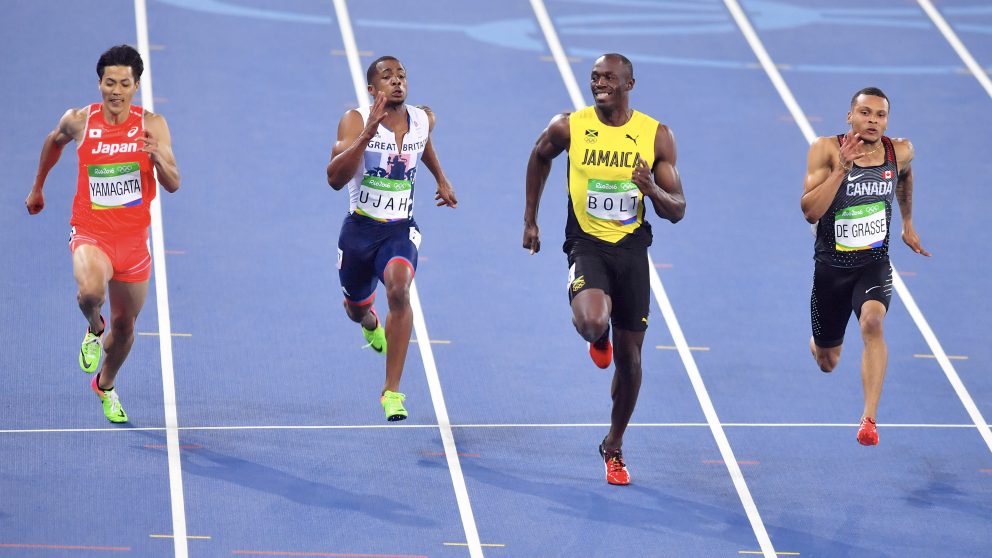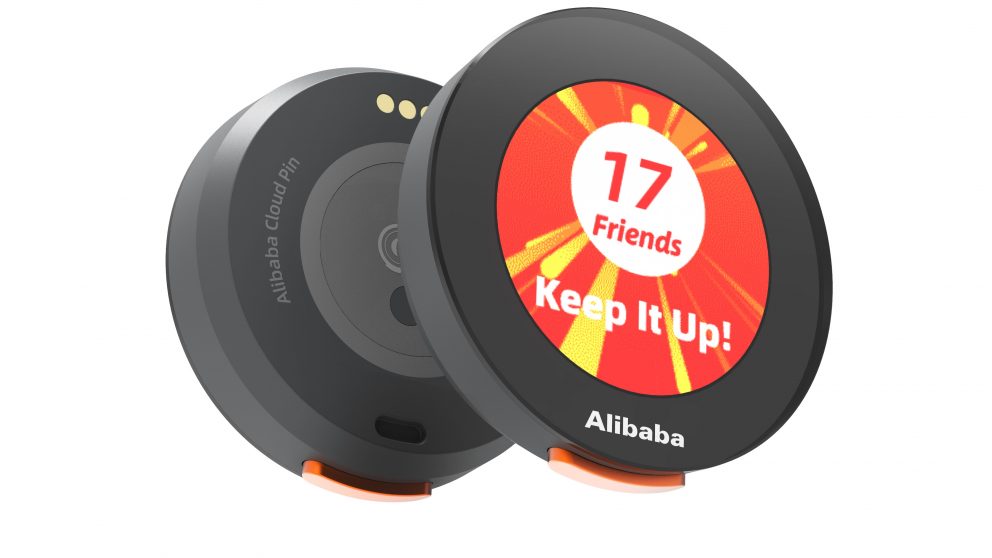
Men's 100 meters sprint at Rio 2016. Photo: Shutterstock
The Olympic Games Tokyo 2020 is undergoing a digital makeover to keep roughly 9,000 hours of content running smoothly, even as the coronavirus pandemic disrupts travel to the host city.
Tech giant Alibaba Group is the official cloud technology and e-commerce services partner of the Olympic Games Tokyo 2020. As such, it is helping media broadcasters transmit the world’s largest sporting event to fans via the cloud, migrating the sale of merchandise online, and supporting athletes’ training and recovery.
In the long term, the updates that Alibaba and others are rolling out at the Olympic Games, taking place between July 23 and August 8, could transform the way sports entertainment is organized. Modifications will continue in the run-up to the Olympic Winter Games Beijing 2022 and beyond.
“We hope to leverage Alibaba’s technology to accelerate digital transformation across the Olympic Games to benefit all stakeholders, from organizers, broadcasters, partners, and most importantly fans and athletes,” said Alibaba’s Chief Marketing Officer, Chris Tung.

Migration to the Cloud
Alibaba’s cloud computing arm, Alibaba Cloud, is partnering with the Olympic Broadcasting Services (OBS) to move the backend of broadcasting to the cloud so that media organizations won’t need to transport as much equipment and as many technical staff to Tokyo to cover the 17 days of the Olympic Games; that’s a boon to companies looking to keep a lid on costs.
As a result, the footprint of the international broadcast centre, the media hub for televising Tokyo 2020, will be 30% smaller than it was during Rio 2016. The hours of footage created at Tokyo 2020 should rise by about 30% compared with output in 2016, OBS forecast.
Digitization has accelerated to help offset the impact of the pandemic, as many journalists struggle to get to Tokyo given travel restrictions, inoculation and quarantine requirements. There are likely to be 27% fewer broadcasters present at Tokyo 2020 than at Rio 2016.
The cloud-based broadcasting platform has been years in the making. Alibaba and OBS launched the platform, OBS Cloud, in 2018 and tested it at the Buenos Aires 2018 Youth Olympic Games as well as at the Lausanne Youth Olympic Games in 2020.
“At Tokyo 2020 this month, this technology will be made available to all broadcasters for the first time,” said Alibaba’s Tung, who spearheaded the Hangzhou-headquartered group’s partnership with the International Olympic Committee (IOC).
Besides’ cutting broadcasters’ costs, migration to the cloud also means that sports coverage should suffer fewer interruptions and be transmitted more securely to hundreds of millions of fans tuning in from around the world, some of whom would have traveled to the event if it were not for the pandemic.
Japan postponed the Olympic Games last year (hence the name Tokyo 2020), and when the pandemic continued into this year, Tokyo organizers and the IOC barred overseas spectators from attending the Olympic Games to reduce health risks for spectators and the local population.
Tools for Athletes
Intel and Alibaba are also distributing connected tools to help athletes before and after Tokyo 2020. The technology aims to generate insights to make athletes’ training more efficient.
During the Olympic Games, one of the most-watched events is also getting a digital makeover. For the 100 meters sprint, the shortest sprinting competition at the Olympics, AI-based near real-time insights and overlay visualizations will be available to broadcasters.
Developed by Silicon Valley-headquartered Intel and hosted on Alibaba’s Cloud infrastructure, computer vision technology, dubbed 3D Athlete Tracking, will employ cameras to capture the race; algorithms to analyze the biomechanics of the runners’ movements and then use the data generated in replays of sprinting events.
“We are proud to help and support the digital transformation of the Olympic Games with our cloud services and to connect more young people to the Olympic Spirit,” Daniel Zhang, Alibaba’s Chairman and CEO.

Where to buy your Olympic Pin?
Olympic pins are among the many souvenirs sold to commemorate the sporting event and are traded by avid collectors and fans. Instead of milling around Tokyo to pick up these mementos this year, many shoppers will switch to buying online.
In 2018, the IOC launched its first-ever online store on Tmall, the e-commerce marketplace operated by Alibaba, for fans in China seeking Olympic-branded merchandise.
The pandemic has given extra impetus to this digital push. Last July, the IOC launched an official content portal for Tokyo 2020 on Tmall to engage with Chinese fans.
Apart from designing a cloud-based digital pin for media professionals, Alibaba Cloud has also integrated three Olympic Games-related websites onto a single, cloud-based platform.
The new centralized platform is expected to enhance the efficiency, stability and security of the online portals, including the official website of the IOC, the Olympic Channel and the Olympic Games Tokyo 2020. The platform officially launched on April 29, following twelve months of development and collaboration with partners across more than seven countries.
“Together with the International Olympic Committee and Olympic Channel Services, we hope to take the Olympic Games to another level with our cloud technologies, and we are all very excited about digitally transformed Olympics starting from Tokyo 2020,” said Alibaba’s Tung.
The digital drive is set to continue in the run-up to the Olympic Winter Games in Beijing in February. Alibaba will roll out a ticketing system for Beijing 2022, which will allow fans to purchase and redistribute tickets more securely.
Sign up for our newsletter to receive the latest Alibaba updates in your inbox every week




